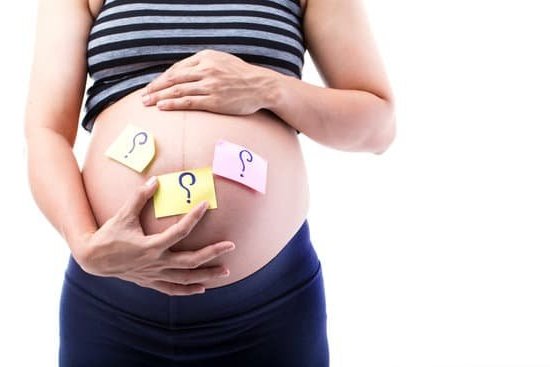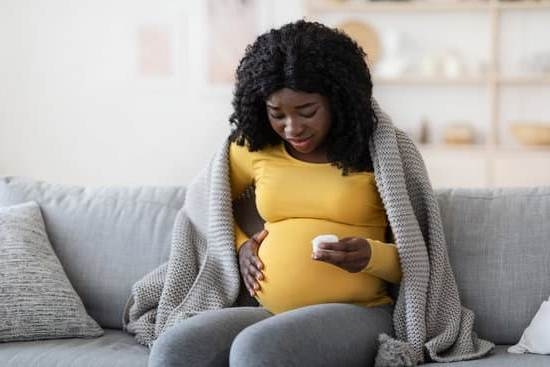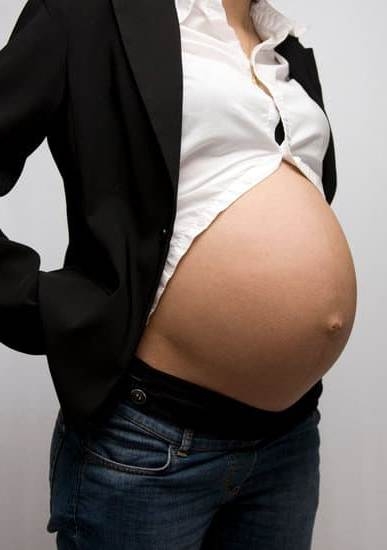When do pregnancy cramps start? For many expectant mothers, the onset of cramping can be a source of worry and confusion. Understanding pregnancy cramps is essential for distinguishing between normal discomfort and potential complications during this crucial time. Cramping in early pregnancy can be a common symptom, but knowing when to seek help is important for both mom and baby’s health.
Pregnancy cramps are often caused by the changes happening in a woman’s body as it prepares to nurture and support a growing fetus. These cramps may feel similar to menstrual cramps, but they can vary in intensity and duration. It is crucial to recognize the difference between normal pregnancy cramps and those that may signal a problem.
Recognizing the early signs of pregnancy cramps is essential for peace of mind and proper management. Knowing what causes these cramps can help expectant mothers better understand their bodies’ responses. By being informed about when pregnancy cramps typically start, women can navigate this phase with more confidence and comfort. Let’s explore further into the causes of pregnancy cramps to ease any concerns or uncertainties surrounding this common experience.
What Are Pregnancy Cramps
During pregnancy, it is common for women to experience cramping in their abdominal area. These cramps can often be a cause for concern, as they mimic the sensations of menstrual cramps. However, it is important to understand that pregnancy cramps are typically not a cause for alarm and can be a normal part of the pregnancy experience.
The causes of pregnancy cramps can vary, but one common reason is the stretching and expansion of the uterus as the baby grows. This stretching can cause discomfort and mild cramping in the lower abdomen. Additionally, hormonal changes during pregnancy can also contribute to cramping as the body adjusts to supporting a growing fetus.
To help you better understand what causes pregnancy cramps, here are some common reasons behind this discomfort:
- Uterus Expansion: As the uterus grows to accommodate the developing fetus, it puts pressure on surrounding organs and muscles
- Hormonal Changes: Fluctuations in hormone levels during pregnancy can lead to changes in muscle contractions
- Implantation: Cramping may occur when the fertilized egg implants itself into the uterine lining
In addition to these causes, other factors such as dehydration, stress, or physical exertion can also contribute to pregnancy cramps. It is essential to listen to your body and consult with your healthcare provider if you have any concerns about unusual or severe cramping during your pregnancy. Remember that every woman’s pregnancy journey is unique, so it is always best to seek guidance from a medical professional when experiencing discomfort.
Early Signs of Pregnancy Cramps
Pregnancy can bring about a range of physical changes, including the possibility of experiencing cramps. When do pregnancy cramps start? Pregnancy cramps typically begin as early as implantation, which occurs around 8-10 days after ovulation. This is often before a missed period, making it one of the earliest signs of pregnancy.
It’s important to recognize that pregnancy cramps can feel different from menstrual cramps. While both types of cramps may feel similar, pregnancy cramps are usually milder and might be accompanied by other symptoms like breast tenderness, fatigue, and nausea. Additionally, pregnancy cramps can come and go throughout the day and may not be as persistent as menstrual cramps.
As the uterus grows and stretches to accommodate the developing baby, mild cramping may continue throughout the first trimester. These cramps are often normal and occur as a result of the ligaments supporting the uterus stretching. However, if you experience severe or persistent cramping accompanied by heavy bleeding or fever, it’s essential to seek medical attention immediately to rule out any complications such as an ectopic pregnancy or miscarriage.
Timeline
Pregnancy cramps are a common concern for many expectant mothers, often causing worry and anxiety. Understanding when pregnancy cramps start can help alleviate some of those concerns and provide reassurance during this delicate time. Cramps during pregnancy can be a normal part of the process as the body undergoes changes to accommodate the growing fetus. In this section, we will delve into the timeline of when pregnancy cramps typically start and what you can expect.
First Trimester
During the first trimester of pregnancy, many women may experience mild cramping that is often mistaken for menstrual cramps. These cramps can start as early as 6-7 days after conception, when the fertilized egg implants itself into the lining of the uterus.
This implantation process can cause slight cramping and spotting, known as implantation bleeding. As the uterus begins to enlarge to make room for the developing baby, some women may continue to experience occasional mild cramping throughout this trimester.
Second Trimester
Typically, by the second trimester, most women experience relief from the early pregnancy symptoms, including cramping. However, some women may still have occasional abdominal discomfort due to the stretching and expanding of ligaments supporting the uterus. This type of cramping is generally harmless and is considered a normal part of pregnancy. It’s essential to stay hydrated, practice good posture, and listen to your body’s cues to help alleviate these discomforts during this stage.
Third Trimester
As you enter the third trimester of pregnancy, you may notice an increase in Braxton Hicks contractions – often referred to as “practice contractions.” These contractions can feel like mild menstrual cramps but are sporadic and irregular in nature. Your body is preparing for labor by practicing these contractions that may become more intense and frequent closer to your due date.
It’s crucial to differentiate between Braxton Hicks contractions and true labor contractions by noticing patterns and any accompanying symptoms such as water breaking or bloody show.
Is Cramping Normal During Pregnancy?
Experiencing cramps during pregnancy is a common occurrence for many women. It is essential to understand that not all cramps signify a problem, as some mild cramping can be a normal part of the pregnancy process. Cramping during pregnancy may occur for various reasons, including the expansion of the uterus, changes in hormone levels, or even constipation. These factors can lead to occasional discomfort in the lower abdomen, similar to menstrual cramps.
When do pregnancy cramps start? It is important to note that pregnancy cramps can begin as early as implantation, which typically occurs around 8-10 days after ovulation. During this time, some women may notice mild cramping and light spotting as the fertilized egg attaches to the uterine lining. As the pregnancy progresses, cramping may continue due to the growth and stretching of the uterus to accommodate the developing baby.
Understanding the timeline of when pregnancy cramps start can vary from woman to woman and throughout different stages of pregnancy. While some women may experience cramping early on, especially during implantation, others may not feel any significant discomfort until later in their first trimester or beyond.
It is important for pregnant individuals to stay attuned to their bodies and communicate any concerns with their healthcare provider if they experience severe or persistent cramping that is accompanied by other symptoms such as vaginal bleeding or fever.
| When Do Pregnancy Cramps Start? | Importance |
|---|---|
| Implantation (8-10 days after ovulation) | Signifies beginning of pregnancy |
| First Trimester | Growth and stretching of uterus |
| Late Pregnancy | Preparation for childbirth |
Overall, while experiencing some level of cramping during pregnancy is normal, it is essential to differentiate between typical discomforts associated with changes in the body and signs of potential complications. Staying informed about what constitutes regular pregnancy symptoms versus when seeking medical attention is necessary can help ease concerns and ensure a healthy pregnancy journey.
Remember that every woman’s experience with pregnancy cramps can vary, so it’s vital to listen to your body and consult your healthcare provider whenever you have questions or uncertainties about your well-being during this delicate time.
Managing Pregnancy Cramps
Pregnancy can be a beautiful and exciting time for many women, but it is not without its challenges. One common discomfort that pregnant women may experience are pregnancy cramps. These cramps can range from mild to severe and can cause varying levels of discomfort. However, there are ways to manage and alleviate these cramps to help make the pregnancy journey more comfortable.
Stay Hydrated
One simple way to help relieve pregnancy cramps is by ensuring that you stay hydrated. Dehydration can exacerbate muscle cramping, so it is important to drink plenty of water throughout the day. A good rule of thumb is to aim for at least 8-10 glasses of water daily. Staying hydrated not only helps with cramping but also supports overall health during pregnancy.
Practice Gentle Exercise
Engaging in gentle exercise such as prenatal yoga or walking can also help in managing pregnancy cramps. These low-impact activities can improve circulation, reduce muscle tension, and promote relaxation. Just be sure to consult with your healthcare provider before starting any new exercise routine during pregnancy.
Use Heat Therapy
Applying heat to the area experiencing cramps can provide relief and comfort. A warm bath, heating pad, or warm compress placed on the abdomen or lower back can help relax muscles and alleviate cramping. It is essential to use heat therapy safely – avoiding excessive heat exposure and ensuring that the temperature is comfortable for you and your baby.
By incorporating these tips into your daily routine, you can effectively manage and find relief from pregnancy cramps. Remember that every woman’s experience with pregnancy is unique, so it may take some trial and error to determine what works best for you. If you have concerns about the frequency or intensity of your pregnancy cramps, do not hesitate to consult with your healthcare provider for additional guidance and support.
When to Seek Medical Attention for Pregnancy Cramps
During pregnancy, it is common for women to experience cramps due to the changes happening in their bodies. While mild cramping is normal and often nothing to worry about, there are instances when it may be necessary to seek medical attention. It is crucial to know when pregnancy cramps may signal a more serious issue that requires medical intervention. Here are some guidelines on when to seek medical attention for pregnancy cramps:
- Severe or persistent cramping: If you are experiencing intense or constant cramping that doesn’t seem to go away, it is important to consult your healthcare provider.
- Accompanied by vaginal bleeding: Cramping coupled with vaginal bleeding could be a sign of a miscarriage or ectopic pregnancy. It is essential to seek medical help immediately if you experience these symptoms.
- Associated with other symptoms: If your cramps are accompanied by symptoms such as fever, chills, dizziness, nausea, vomiting, or pain while urinating, seek medical attention promptly.
It’s vital not to ignore any unusual or concerning symptoms during your pregnancy journey. Your healthcare provider can assess the situation and provide appropriate guidance or treatment if needed. Remember that each pregnancy is unique, so it’s always better to err on the side of caution when it comes to seeking medical attention for pregnancy-related concerns.
- Contact your healthcare provider if you have any doubts or questions about the nature of your pregnancy cramps.
- Keep track of the frequency and intensity of your cramps as well as any accompanying symptoms so that you can provide detailed information to your healthcare provider.
- Trust your instincts – if something feels off or different about your cramps, don’t hesitate to reach out for professional advice.
Conclusion
Pregnancy cramps can start as early as implantation, which occurs about 8-10 days after ovulation. These cramps are often milder compared to menstrual cramps but can still cause discomfort for some women. As the pregnancy progresses, cramping may continue intermittently due to the stretching and growing of the uterus. It is important for pregnant individuals to understand that experiencing some level of cramping during pregnancy is normal.
Taking care of yourself during pregnancy cramps involves listening to your body and understanding when it is necessary to seek medical attention. While mild cramps are usually nothing to worry about, severe or persistent cramping could be a sign of a more serious issue such as ectopic pregnancy or miscarriage. It is crucial to trust your instincts and consult with your healthcare provider if you have any concerns about the intensity or frequency of your cramps.
In conclusion, being informed about when pregnancy cramps start and understanding what is considered normal can help alleviate anxiety during this special time. Remember to stay hydrated, get plenty of rest, practice gentle exercises, and consider trying relaxation techniques such as deep breathing or prenatal yoga to relieve discomfort. Your well-being and that of your baby should always be a top priority, so don’t hesitate to reach out for support whenever needed.
Frequently Asked Questions
Where Are Pregnancy Cramps Located?
Pregnancy cramps are usually located in the lower abdomen, similar to menstrual cramps. However, they can also be felt on one side or throughout the pelvic area. These cramps may feel different for each woman.
How Early Do Pregnancy Symptoms Start?
Pregnancy symptoms can start as early as a week after conception, but most women begin to notice them around 4-6 weeks into their pregnancy. Early signs can include fatigue, nausea, breast tenderness, and frequent urination.
How Long Do You Cramp Before Pregnancy?
Cramping before pregnancy can vary from woman to woman and may not always be a reliable indicator of conception. Some women experience mild cramping due to implantation of the fertilized egg, while others may not feel any cramping at all before discovering they are pregnant.

Welcome to my fertility blog. This is a space where I will be sharing my experiences as I navigate through the world of fertility treatments, as well as provide information and resources about fertility and pregnancy.





